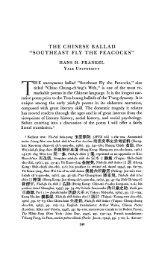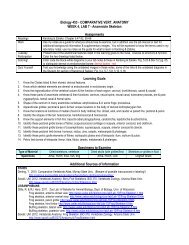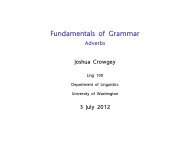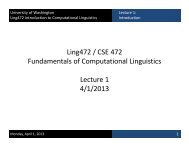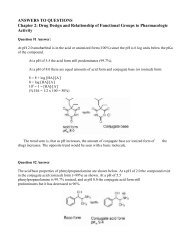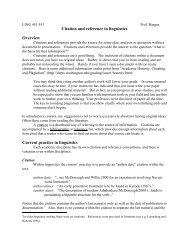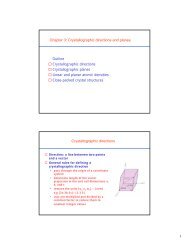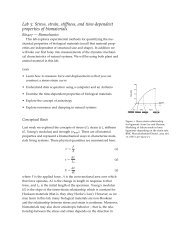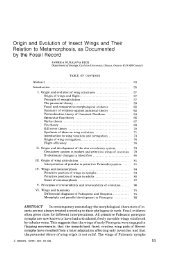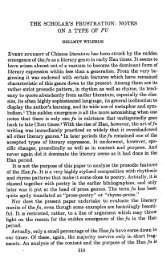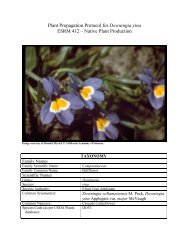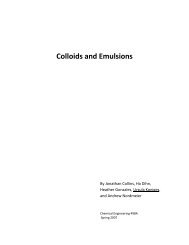Case C-44/01 Pippig Augenoptik Gmbh & Co. KG v Hartlauer ...
Case C-44/01 Pippig Augenoptik Gmbh & Co. KG v Hartlauer ...
Case C-44/01 Pippig Augenoptik Gmbh & Co. KG v Hartlauer ...
You also want an ePaper? Increase the reach of your titles
YUMPU automatically turns print PDFs into web optimized ePapers that Google loves.
Arrêt de la <strong>Co</strong>ur<br />
the form described in paragraphs 15 to 18 of this judgment, on the grounds that such<br />
advertising was misleading and discrediting. It also sought damages against the<br />
defendants and the publication of the judgment at their expense.<br />
20 The first instance and appeal courts having accepted most, but not all, of <strong>Pippig</strong>'s claims,<br />
the applicant and the defendants both brought an appeal for Revision before the Oberster<br />
Gerichtshof.<br />
21 Taking the view that interpretation of Directive 84/450 was necessary in order to resolve<br />
the dispute before it, the Oberster Gerichtshof decided to stay the proceedings and refer<br />
the following questions to the <strong>Co</strong>urt of Justice for a preliminary ruling:<br />
(1) Is Article 7(2) of Directive 97/55/EC of the European Parliament and of the <strong>Co</strong>uncil of<br />
6 October 1997 amending Directive 84/450/EEC concerning misleading advertising so as<br />
to include comparative advertising ( the directive) to be interpreted to the effect that<br />
“comparative advertising, as far as the comparison is concerned” means the statements<br />
regarding the product offered by the advertiser himself, the statements regarding the<br />
product offered by the competitor and the statements regarding the relationship between<br />
the two products (the result of the comparison)? Or is there a “comparison” within the<br />
meaning of Article 7(2) of the directive only in so far as the statements are made<br />
regarding the result of the comparison, with the consequence that misconceptions<br />
regarding other features of the compared goods/services may be assessed on the basis<br />
of a national standard governing misleading statements which is possibly more strict? Is<br />
the reference in Article 3a(1)(a) of the directive to Article 7(1) of the directive a lex<br />
specialis in relation to Article 7(2) of the directive, with the result that a national standard<br />
governing misleading statements which is possibly more strict may be applied to all<br />
elements of the comparison? Is Article 3a(1)(a) of the directive to be interpreted as<br />
meaning that the comparison of the price of a brand-name product with the price of a noname<br />
product of equivalent quality is not permitted where the name of the manufacturer is<br />
not indicated, or do Article 3a(1)(c) and Article 3a(1)(g) of the directive preclude indication<br />
of the manufacturer? Is the image of a (brand-name) product a feature of the<br />
product/service within the meaning of Article 3a(c) of the directive? Does it follow from a<br />
(possible) negative answer to this question that any (price) comparison of a brand-name<br />
product with a no-name product of equivalent quality is not permitted?<br />
(2) Is Article 7(2) of the directive to be interpreted as meaning that differences in the<br />
procurement of the product/service whose features are compared with features of the<br />
advertiser’s product/service must also be assessed solely on the basis of Article 3a of the<br />
directive? If this question is answered in the affirmative: Is Article 3a of the directive to be<br />
interpreted as meaning that a (price) comparison is permitted only if the compared goods<br />
are procured through the same distribution channels and are thus offered by the<br />
advertiser and his competitor(s) in a comparable selection?<br />
(3)<br />
Page 8 of 18<br />
Is comparison within the meaning of Article 7(2) of the directive to be construed as including<br />
the creation of the bases for comparison through a test purchase? If this question is<br />
answered in the affirmative: Is Article 3a of the directive to be interpreted as meaning that<br />
the deliberate initiation of a (price) comparison which is favourable to the advertiser<br />
through a test purchase which is made before the beginning of the advertiser's own offer<br />
and is arranged accordingly makes the comparison unlawful?<br />
http://eur-lex.europa.eu/LexUriServ/LexUriServ.do?uri=CELEX:620<strong>01</strong>J00<strong>44</strong>:EN:HTML<br />
12/21/2008



